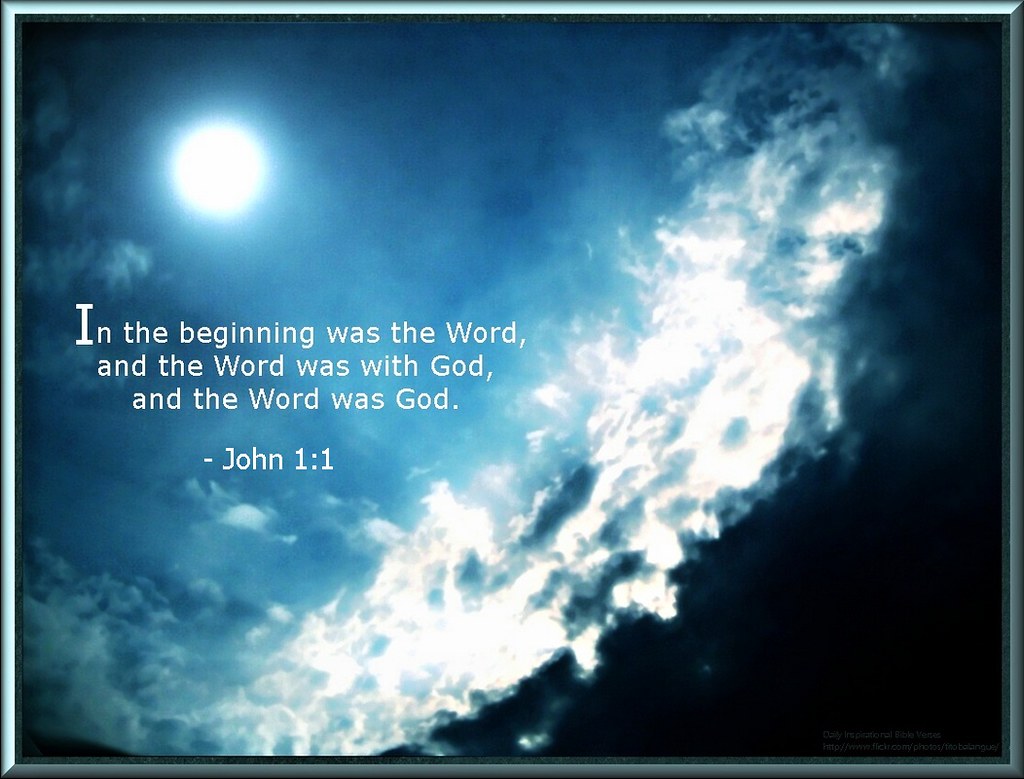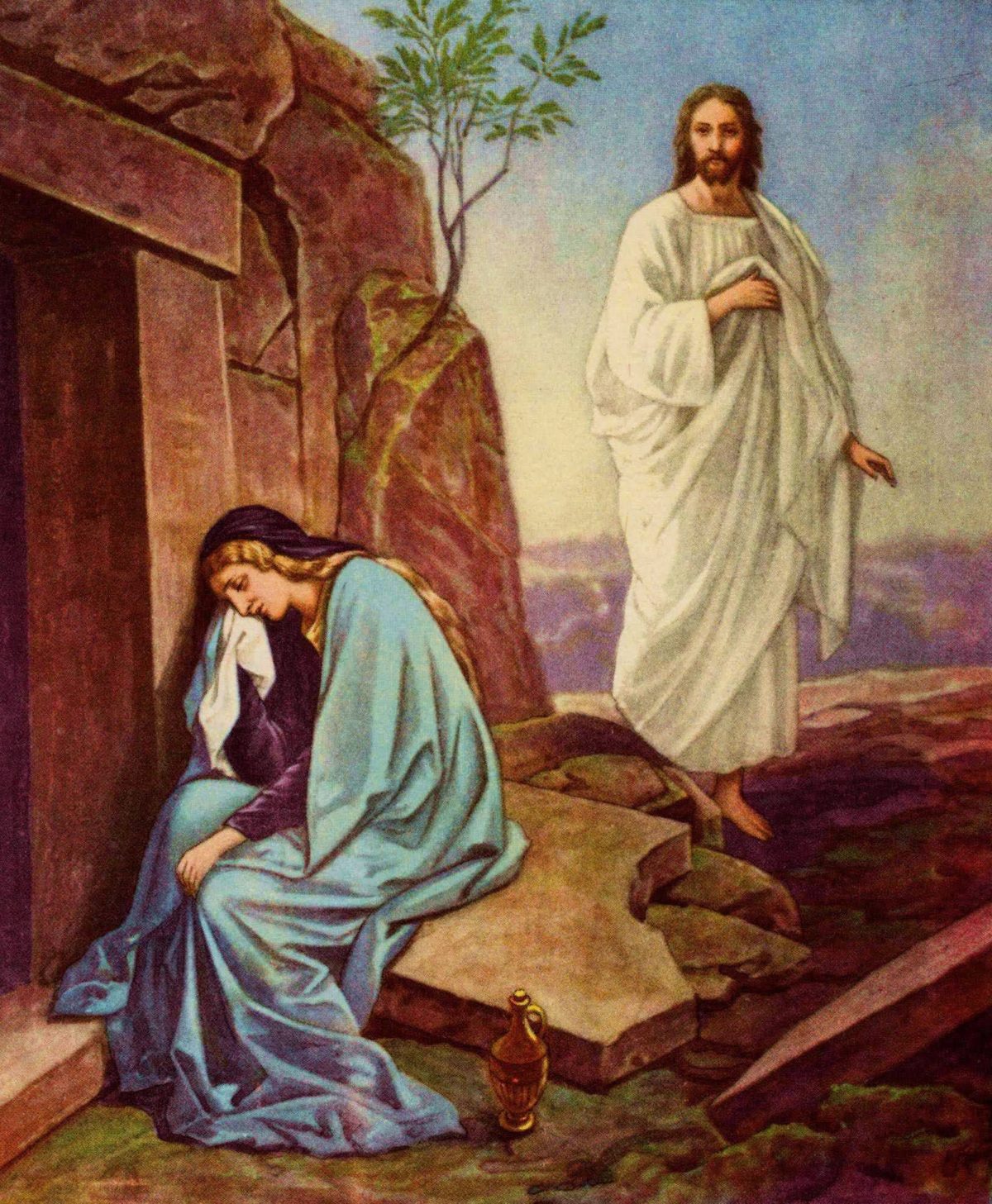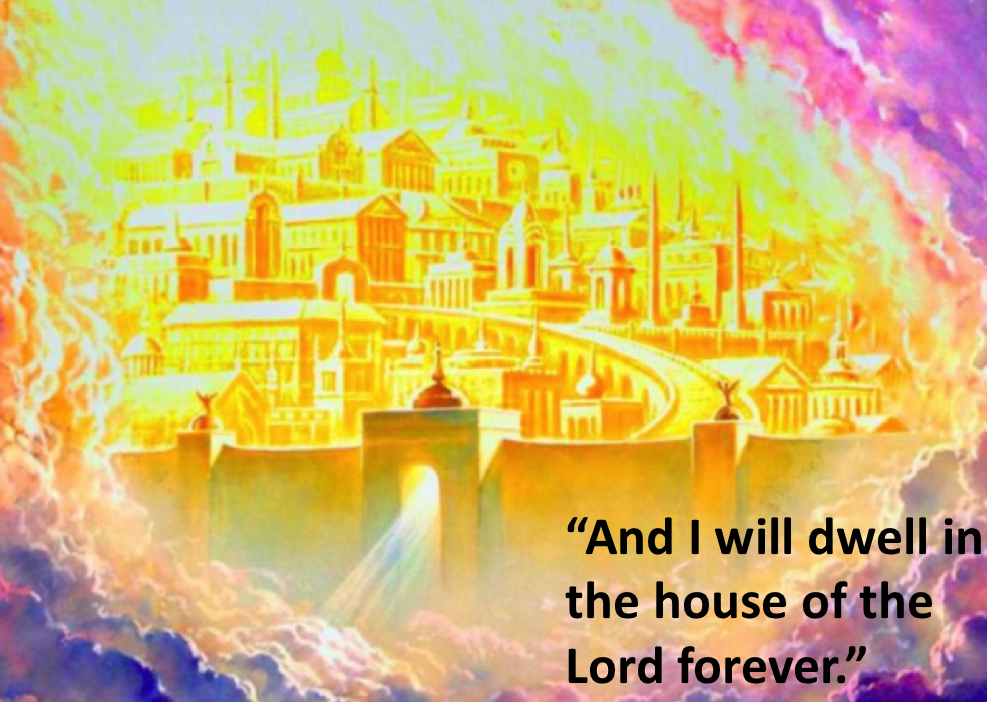“Then
the other disciple, who came to the tomb first, went in also; and he saw and
believed.” John 20:8
As we
celebrated Jesus’ resurrection today, those of us who believe in Jesus as our
Savior are filled with joy as we sing and worship our risen Lord! However, it
may be difficult for us to realize what it was like for those who discovered
the empty tomb on that first resurrection Sunday. When Mary saw that the tomb
was empty, she wasted no time and “ran” to Peter and John, “the other
disciple, whom Jesus loved” to tell them that “they” (the religious leaders), “have taken away the Lord out of the tomb” (20:2b).
Why
didn’t Mary remember Jesus’ promise
that He made before His crucifixion, saying He would rise from the dead on the
third day (Matthew 16:21; 20:19)? Why didn’t Mary relay the message of the
angel announced to her (and the other women) earlier that morning, that Jesus
had risen (cf. Matthew 28:1-8; Luke 24:1-10)? Mark’s account tells us that fear
had overcome Mary, so she said nothing to anyone (cf. Matthew 28:8; Mark 16:8).
Since Mary was a former demon possessed person, she may have feared people would
easily suspect her of having hallucinations (cf. Mark 16:9; Luke 8:2). She may
have thought that the angels were actually men who took Jesus’ body. What would
that be like to have the body of the One you followed stolen from His grave?
In 1876,
a gang of counterfeiters from Chicago attempted to steal the dead body of
President Abraham Lincoln and hold it for ransom. Even though their attempt
to steal Lincoln’s remains failed, it led to Lincoln’s corpse being buried
again in Springfield, Illinois, in a steel cage under tons of cement so that it
would not happen again. When the rest of the nation found out about this failed
attempt to steal the President’s remains, it was in shock that a leader like
that would be defiled in that kind of way.
That is
probably how Mary and the disciples of Jesus must have felt. Their response is
not uncommon. Even for us, when we first discover the shocking truth of the
resurrection of Christ, we may have more confusion or doubt than we have of joy
or hope. For example, when we attempt to apply the truth of Christ’s
resurrection to our lives, we may have confusion
– “How does Jesus’ resurrection apply
to my situation?” Or we may have fear
– “I’m afraid of what this power might do in my life.” Or we may even
have doubt– “I don’t know
if this power will work in my life.” For Mary it was confusion (20:2). For
the disciples in the Upper Room it was fear (20:19). For Thomas it was doubt
(20:24-25).
Notice
Mary said, “They have taken away the
Lord out of the tomb” (20:2b). Often when it comes to the resurrection of
Jesus and how that resurrection can apply to our lives, the hope is right there
in front of us. We just cannot see it yet. How can I start to see the
resurrected Jesus there where I am confused?
When
Mary informed Peter and John of the empty tomb, they wasted no time talking.
They ran toward the tomb. “Peter
therefore went out, and the other disciple, and were going to the tomb. So they
both ran together, and the other disciple outran Peter and came to the tomb
first” (20:3-4). These verses are captivating because of their eyewitness
nature. John probably wrote these verses thirty-five years after it happened.
But as we read this almost two thousand years later, it reads like it happened
today. Like he just saw it. If this happened to me, I would not forget it either.
It is almost funny to read this eyewitness account because it is so fresh and
real to John. Even though it is thirty-five years later, John wants his readers
to know he was faster than Simon Peter. That sounds like someone else I know –
me!
Even
though John arrived at the empty tomb first, he does not go into the tomb. “And he, stooping down and looking in, saw
the linen cloths lying there; yet he did not go in” (20:5). John seems to
wait at the entrance to process what he sees as quickly as possible. “Why would the linen wrappings be here
without the body? Is there any sign of forced entry? Any indication of foul
play? Where is the body? What has happened here?”
“Then
Simon Peter came, following him, and went into the tomb; and he saw the linen
cloths lying there, and the handkerchief that had been around His head, not
lying with the linen cloths, but folded together in a place by itself” (20:6-7).
Peter pushes his
way past John, as if to say, “Out of the
way John. I’ve got to go in there to see what has happened.” That’s just
the way Peter was. Peter also saw thestrips of “linen cloths
lying there” where the body of Jesus had been placed and he also saw “the handkerchief that had been around His
head.” Instead of being tossed aside, it was “folded together in a place by itself.” The fact that this head
piece was “not lying with the linen
cloths” suggests that Jesus first unwrapped the face cloth and folded it,
set it down, and then unwrapped the rest of His grave clothes. The fact that
the grave clothes were not in disarray and that the headpiece was neatly
folded, demonstrates that the body was not stolen. Grave robbers would have
been in a hurry and either taken the body with the wrappings or would have
ripped and scattered them. Thieves would not have been this careful.
John now goes into the tomb. “Then the other disciple, who came to the tomb first, went in also; and he saw and believed” (20:8). What did John “believe?” Mary’s report that the tomb was empty? Doubtful. When John saw that Jesus’ body was missing and the position of His grave clothes, he believed Jesus had risen from the dead. The evidence persuaded him to believe Christ was alive.
But I
learned something new about the folded head piece. To
understand the significance of the folded head piece, you must understand a
little bit about the Master and Servant relationship in Jesus’ day. When the
servant set the dinner table for the master, he made sure that it was exactly
the way the master wanted it. The table was furnished perfectly, and then the
servant would wait out of sight until his master had finished eating. How did
the servant know his master was finished eating? His master would rise from the
table, wipe his fingers, his mouth, and clean his beard, and would wad up that
napkin and toss it onto the table. The servant would then know to clear the
table. For in those days, the wadded napkin meant, “I’m done.” But
if the master got up from the table, and folded his napkin, and laid it beside
his plate, the servant would not dare touch the table, because the folded
napkin meant, “I’m coming back!” John may have understood Jesus’ folded
head piece to mean He was coming back! He was alive!
If you
and I are going to see Jesus’ resurrection in our daily lives, we need evidence
for our minds. For example, when you say, “I
believe Jesus Christ rose from the dead,” how do I know you are not making
that up? What makes that statement any different than saying, “I believe
that the scrambled eggs I ate this morning has the power to change my life?”
What makes it any different? Evidence. Something amazing happened in that tomb.
There are three
different words used for “saw” in
these verses (20:5-6, 8). When we are told that John bent down and “looked
in” the tomb, the word for “saw” [blépō,
βλέπω] means “to glance or look quickly at something” (20:5). When Peter entered the tomb, the word
John uses for “saw” [theōréō, θεωρέω]
refers to a “careful observation” (20:6). This is the word that we get
the English word “theorize” from. When Peter saw the linen cloths lying
there, he was thinking it through, wondering what was happening. He was coming
up with a theory. The third word John used for “saw” [horáō, ὁράω] means “to perceive with
intelligent comprehension” (20:8). Peter saw more after entering the
tomb than John did in his first glance from outside the tomb, but John saw into
the meaning of it all better than Peter. Peter had more sight, but John more
insight. The evidence of Christ’s resurrection convinced John even before
he met the resurrected Jesus.
These verses describe
three different ways of seeing the truth of Jesus’ resurrection. I can take the truth of Jesus’
resurrection and just glance at it as I run by. Or I can gaze at it and try to
figure it out. But the third way, the way John saw, is I can get it. John looks
at the evidence and sees what has happened, and something happened in his mind.
We have had this happen with spiritual truth. It is when the truth is perceived
in our minds so that it becomes real in our lives. We are convinced that it
will make a difference in who we are. This isn’t just some theory. This is
real.
Some people think that to have faith means you stop thinking. But we cannot believe in something that our mind rejects. Christianity is reasonable because it is based on historical facts. The resurrection of Christ makes sense when you start to look at what really happened. It is not true that there is no evidence for our faith. There are a number of very strong evidences for the resurrection of Jesus Christ.
1. The historical record. The Bible explains, “Concerning His Son Jesus Christ our Lord, who was … declared to be the Son of God with power… by the resurrection from the dead” (Romans 1:3-4). The proof that Jesus rose from the dead was that He was seen alive after His death by over five hundred eyewitnesses (I Corinthians 15:5-8). Listen to what a former persecutor of Christianity wrote in the Bible. “3 That Christ died for our sins according to the Scriptures, 4 and that He was buried, and that He rose again the third day according to the Scriptures, 5 and that He was seen by Cephas, then by the twelve. 6 After that He was seen by over five hundred brethren at once” (I Corinthians 15:3-6).
Notice the phrase “Christ died for our sins according to the Scriptures.” Hundreds of years before Jesus came to earth, the prophet Isaiah predicted in the Old Testament Scripture that the Messiah would die for our sins. “He was wounded for our transgressions, He was bruised for our iniquities” (Isaiah 53:6). When Jesus died on the cross, He fulfilled Isaiah’s prophecy. The proof that Jesus died was “that He was buried” (I Corinthians 15:4a). We do not bury a living person, we bury a dead person.
Next, we see that Jesus “rose again the third day according to the Scriptures” (I Corinthians 15:4b). The verb “rose” is in the perfect tense in the original language, and it means Jesus rose from the dead in the past and He remains risen today. You will never hear a news report today that says Jesus’ dead body has been found. Why? Because He is risen and He remains alive today!
Notice the phrase, “according to the Scriptures.” Jesus’ resurrection also fulfilled Old Testament Scriptures written hundreds of years before Christ came to earth. In Psalm 16:10, King David wrote, “For You will not leave my soul in Sheol, nor will You allow Your Holy One to see corruption.” On the day of Pentecost in Acts 2, a follower of Jesus named, Peter, said that when Jesus rose from the dead, He fulfilled what David wrote hundreds of years before. “Men and brethren, let me speak freely to you of the patriarch David, that he is both dead and buried, and his tomb is with us to this day. Therefore, being a prophet, and knowing that God had sworn with an oath to him that of the fruit of his body, according to the flesh, He would raise up the Christ to sit on his throne, he, foreseeing this, spoke concerning the resurrection of the Christ, that His soul was not left in Hades, nor did His flesh see corruption. This Jesus God has raised up, of which we are all witnesses.” Acts 2:29-32
Finally, in I Corinthians 15, we see the proof that Jesus rose from the dead was that He was “seen” by over 500 eyewitnesses (I Corinthians 15:5-8). This is more than enough evidence to substantiate that Jesus rose from the dead.
Just as history proclaims that George Washington was the first President of the USA, so history proclaims that Jesus Christ was resurrected from the dead. The resurrection of Christ is the most attested fact of history. Thomas Arnold authored a three-volume history of Rome and was appointed to Oxford’s Chair of Modern History. Concerning the evidence behind the resurrection of Jesus Christ, he said,
“I have been used for years to study the histories of other times, and to examine and weigh the evidence of those who have written about them, and I know of no one fact in the history of mankind which is proved by better and fuller evidence of every sort, to the understanding of a fair inquirer, than that Christ died and rose from the dead.”
Frank Morison, a British trial lawyer, vowed to write a book disproving Christianity and committed to base his book on a collection of facts. Using a critical method of evaluation and despite his initial beliefs, he concluded that Christianity is true. The resurrection convinced him, and he wrote a book Who Moved the Stone? which begins with the chapter, “The Book that Refused to Be Written.”
Former atheists Josh McDowell and Lee Strobel set out to disprove the resurrection of Christ only to be persuaded by the historical evidence that Jesus did indeed rise from the dead. You can read about the evidence that persuaded them to believe in Jesus in their books – “More Evidence that Demands a Verdict” (1999) by Josh McDowell and “The Case for Christ” (2013) by Lee Strobel.
Another proof of Jesus’ resurrection is 2. The change in the lives of His followers. His disciples were not shrewd men who figured out some weird way to start a new religion. They did not say, “Let’s get our Leader killed off. Then we’ll go hide out in an upper room and then all of a sudden we will have a new hope.” No. After Jesus’ death, these men were discouraged . They were hiding for fear of the Jews. And all of a sudden their lives were changed overnight! And they went out preaching the message of Jesus Christ without fear. They were not afraid of being arrested or of being put to death. What happened to them? The resurrection of Jesus Christ.
The third proof of Jesus’ resurrection is 3. The silence of Jesus’ enemies. If you were one of Jesus’ enemies (the Romans or Jewish religious leaders), and you have the disciples going around saying Jesus is alive and it’s bringing people away from your faith to a new faith, what would you do to stop them? Go find the dead body! If you could find the dead body of Jesus Christ, it would bring this entire movement to a stop. But they couldn’t find the body. Why? Because there was no dead body to be found. They tried to make sure that the body would stay there in the tomb. They sealed the tomb and had Roman soldiers guard it to keep somebody from trying to get in to the tomb. But they forgot that somebody would be getting out. And when Jesus burst out of that tomb in resurrection, there was no body there.
The final proof of Jesus’ resurrection – 4. The changed lives of people today. Look at what the risen Lord Jesus is doing in the lives of people from every nation today! Former atheists and God-haters are coming to faith in Christ. Those who once hated God and people, are now loving God and people because of the risen Lord Jesus Christ. And I am one of those people.
You may say, “I believe in another religion. It has changed my life just like your belief in Jesus Christ. What’s the difference?” The difference is an empty tomb. The difference is Christians have a reality behind their faith. Their faith is based upon historical facts. It is not a man-made philosophy or superstition. We have evidence for our minds.
For John
that evidence was very powerful. What did he see that made him believe? Was it
the stone that was cast aside? No. Was it an angel? No. He saw the grave
clothes lying there and he believed. There was something about the
arrangement of the grave clothes. A lot of people say they were lying there
as if Jesus had just evaporated out of them immediately. And because they were
folded so neatly, not torn aside. Remember, the strips of linen would have been
wrapped around the body. You couldn’t get a body out of that and leave it just
lying there undisturbed. So when John saw that he believed. That evidence persuaded
him to believe that Jesus rose from the dead.
I find verse nine to be very significant. “For as yet they did not know the Scripture, that He must rise again from the dead” (John 20:9). The disciples did not yet understand the prophecies of Scripture that indicated Jesus would rise from the dead. Their belief in the resurrection preceded their understanding that the resurrection was foretold in Scripture. The first believers did not manufacture a resurrection story to agree with their interpretation of prophecy. Instead, they were first convinced that Christ had risen and then they came to an understanding of the Scriptural teaching of this truth.
I
wonder. What if we had stopped at the empty tomb that morning? What if
this were all we had of the resurrection account? They went in and the clothes
were there, and the linen was there undisturbed. I think if that were true
there would be some of us who would say, “Wow, Jesus must be alive for His
clothes to be arranged that way!” Others of us may say, “Maybe I can
believe.” There would be a lot of us who would say, “There’s just not
enough evidence.” When it comes to
seeing the resurrected Lord, some of need more than just evidence for our minds.
We will talk more about that tomorrow, Lord willing.
Prayer: My precious risen Lord Jesus,
thank You for providing evidence for our minds that persuades us to believe You
truly rose from the dead. When John looked in that tomb and saw Your body was
missing and the position of Your grave clothes, he believed You were alive and
were coming back! One of the things I love the most about You, Lord Jesus, is
You meet us where we are at. Many people today are confused about Your
resurrection. Please reveal more of Yourself to them so that their confusion is
changed into confidence that You are alive and You can give them everlasting
life when they believe in You. Thank You, Lord Jesus. In Your name I pray. Amen.










